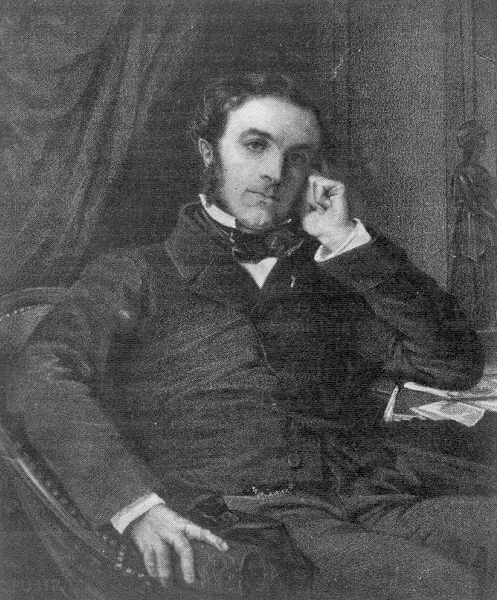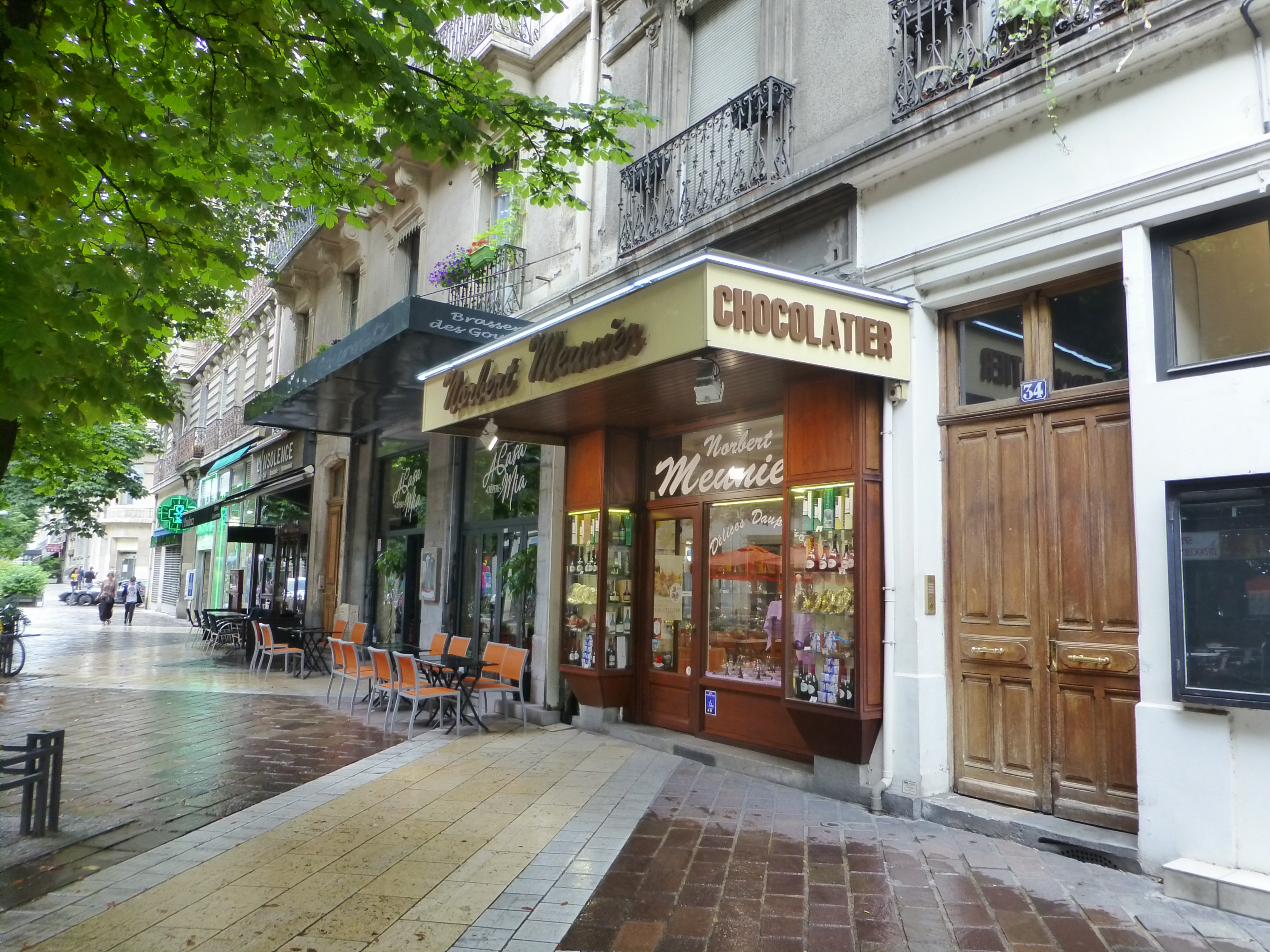|
1826 In France
Events from the year 1826 in France. Incumbents * List of French monarchs, Monarch – Charles X of France, Charles X * List of Prime Ministers of France, Prime Minister – Joseph de Villèle Events *15 January - The newspaper ''Le Figaro'' begins publication in Paris, initially as a satirical weekly. *June - History of photography, Photography: Nicéphore Niépce makes a true photograph, ''View from the Window at Le Gras''. *19 August - Louis Christophe François Hachette purchases the Brédif bookshop on rue Pierre-Sarrazin, Paris, origin of the Hachette (publisher), Hachette publishing business. *3 November - The Euronext Paris, Paris Stock Exchange opens at the Paris Bourse, ''Palais de la Bourse''. *Unknown date - Société alsacienne de constructions mécaniques founded; becomes part of Alstom, global railway rolling stock manufacturer. Arts and literature *The second novel by Victor Hugo, ''Bug-Jargal'', is published. Births *6 April - Gustave Moreau, painter (di ... [...More Info...] [...Related Items...] OR: [Wikipedia] [Google] [Baidu] |
France
France (), officially the French Republic ( ), is a country primarily located in Western Europe. It also comprises of Overseas France, overseas regions and territories in the Americas and the Atlantic Ocean, Atlantic, Pacific Ocean, Pacific and Indian Oceans. Its Metropolitan France, metropolitan area extends from the Rhine to the Atlantic Ocean and from the Mediterranean Sea to the English Channel and the North Sea; overseas territories include French Guiana in South America, Saint Pierre and Miquelon in the North Atlantic, the French West Indies, and many islands in Oceania and the Indian Ocean. Due to its several coastal territories, France has the largest exclusive economic zone in the world. France borders Belgium, Luxembourg, Germany, Switzerland, Monaco, Italy, Andorra, and Spain in continental Europe, as well as the Kingdom of the Netherlands, Netherlands, Suriname, and Brazil in the Americas via its overseas territories in French Guiana and Saint Martin (island), ... [...More Info...] [...Related Items...] OR: [Wikipedia] [Google] [Baidu] |
Victor Hugo
Victor-Marie Hugo (; 26 February 1802 – 22 May 1885) was a French Romantic writer and politician. During a literary career that spanned more than sixty years, he wrote in a variety of genres and forms. He is considered to be one of the greatest French writers of all time. His most famous works are the novels ''The Hunchback of Notre-Dame'' (1831) and ''Les Misérables'' (1862). In France, Hugo is renowned for his poetry collections, such as (''The Contemplations'') and (''The Legend of the Ages''). Hugo was at the forefront of the Romanticism, Romantic literary movement with his play ''Cromwell (play), Cromwell'' and drama ''Hernani (drama), Hernani''. Many of his works have inspired music, both during his lifetime and after his death, including the opera ''Rigoletto'' and the musicals ''Les Misérables (musical), Les Misérables'' and ''Notre-Dame de Paris (musical), Notre-Dame de Paris''. He produced more than 4,000 drawings in his lifetime, and campaigned for social cau ... [...More Info...] [...Related Items...] OR: [Wikipedia] [Google] [Baidu] |
Politician
A politician is a person active in party politics, or a person holding or seeking an elected office in government. Politicians propose, support, reject and create laws that govern the land and by an extension of its people. Broadly speaking, a politician can be anyone who seeks to achieve political power in a government. Identity Politicians are people who are politically active, especially in party politics. Political positions range from local governments to state governments to federal governments to international governments. All ''government leaders'' are considered politicians. Media and rhetoric Politicians are known for their rhetoric, as in speeches or campaign advertisements. They are especially known for using common themes that allow them to develop their political positions in terms familiar to the voters. Politicians of necessity become expert users of the media. Politicians in the 19th century made heavy use of newspapers, magazines, and pamphlets, as well ... [...More Info...] [...Related Items...] OR: [Wikipedia] [Google] [Baidu] |
Archaeologist
Archaeology or archeology is the scientific study of human activity through the recovery and analysis of material culture. The archaeological record consists of artifacts, architecture, biofacts or ecofacts, sites, and cultural landscapes. Archaeology can be considered both a social science and a branch of the humanities. It is usually considered an independent academic discipline, but may also be classified as part of anthropology (in North America – the four-field approach), history or geography. Archaeologists study human prehistory and history, from the development of the first stone tools at Lomekwi in East Africa 3.3 million years ago up until recent decades. Archaeology is distinct from palaeontology, which is the study of fossil remains. Archaeology is particularly important for learning about prehistoric societies, for which, by definition, there are no written records. Prehistory includes over 99% of the human past, from the Paleolithic until the adve ... [...More Info...] [...Related Items...] OR: [Wikipedia] [Google] [Baidu] |
Charles Ernest Beulé
Beulé's grave at the Père Lachaise Cemetery in Paris Charles Ernest Beulé (29 June 1826 – 4 April 1874) was a French archaeologist and politician. Biography Born at Saumur, Maine-et-Loire, he was educated at the École Normale, and after having held the professorship of rhetoric at Moulins for a year, was sent to Athens in 1851 as one of the professors in the École Française there. He had the good fortune to discover the '' propylaea'' of the acropolis, and his work, ''L'Acropole d'Athènes'' was published by order of the minister of public instruction. On his return to France, promotion and distinctions followed rapidly upon his first successes. He was made doctor of letters, ''chevalier'' of the Légion d'honneur, professor of archaeology at the Bibliothèque Impériale, member of the Académie des Inscriptions et Belles-Lettres, and perpetual secretary of the Académie des Beaux-Arts. He took great interest in political affairs, with which the last few y ... [...More Info...] [...Related Items...] OR: [Wikipedia] [Google] [Baidu] |
1881 In France
Events from the year 1881 in France. Incumbents *President: Jules Grévy *President of the Council of Ministers: Jules Ferry (until 14 November), Charles de Freycinet (starting 14 November) Events * 13 February – First issue of the feminist newspaper ''La Citoyenne'' is published by Hubertine Auclert. * 23 March – A fire caused by a gas explosion destroys the Opéra de Nice with fatalities. * 12 May – Treaty of Bardo is signed between the French Republic and Tunisian bey Muhammed as-Sadiq. Tunisia becomes a French protectorate. * 29 July – Law on the Freedom of the Press passed. Births * 11 January – Lucien Rosengart, engineer (died 1976) * 21 January – André Godard, archeologist and architect (died 1965) * 19 February – Paul Tournon, architect (died 1964) * 20 February – Julien Maitron, cyclist (died 1972) * 21 February – Marc Boegner, theologist, pastor, French Resistance member and essayist (died 1970) * 18 March – Paul Le Flem, composer and musician ( ... [...More Info...] [...Related Items...] OR: [Wikipedia] [Google] [Baidu] |
Chocolatier
A chocolatier is a person or company who makes confectionery from chocolate. Chocolatiers are distinct from chocolate makers, who create chocolate from cacao beans and other ingredients. Education and training Traditionally, chocolatiers, especially in Europe, trained through an apprenticeship with other chocolatiers. It is now equally common for chocolatiers to start out as pastry or confectionery chefs, or attend culinary training specifically for working with chocolate. Being a master chocolatier involves perfecting the art of working with chocolate to create desserts as well as skillfully crafted pieces of art with chocolate. Chocolatiers must understand the physical and chemical aspects of chocolate, to not only create chocolates and other confections, but also to create sculptures and centrepieces. Perfecting the technical aspects of design and developing the art of flavor takes many years of practice. Culinary schools There are a variety of culinary schools and spe ... [...More Info...] [...Related Items...] OR: [Wikipedia] [Google] [Baidu] |
Pharmacology
Pharmacology is a branch of medicine, biology and pharmaceutical sciences concerned with drug or medication action, where a drug may be defined as any artificial, natural, or endogenous (from within the body) molecule which exerts a biochemical or physiological effect on the cell, tissue, organ, or organism (sometimes the word ''pharmacon'' is used as a term to encompass these endogenous and exogenous bioactive species). More specifically, it is the study of the interactions that occur between a living organism and chemicals that affect normal or abnormal biochemical function. If substances have medicinal properties, they are considered pharmaceuticals. The field encompasses drug composition and properties,functions,sources,synthesis and drug design, molecular and cellular mechanisms, organ/systems mechanisms, signal transduction/cellular communication, molecular diagnostics, interactions, chemical biology, therapy, and medical applications and antipathogenic capabilities. ... [...More Info...] [...Related Items...] OR: [Wikipedia] [Google] [Baidu] |
1920 In France
Events from the year 1920 in France. Incumbents *President: ** until 18 February: Raymond Poincaré ** 18 February – 21 September: Paul Deschanel ** starting 21 September: Alexandre Millerand *President of the Council of Ministers: ** until 20 January: Georges Clemenceau ** 20 January – 24 September: Alexandre Millerand ** starting 24 September: Georges Leygues Events In the opening of the year 1920, France was in a stronger position than she had been in for several generations. The Allied victory over Germany and the restoration of Alsace-Lorraine to France had placed France in the position which she occupied during the 17th and 18th century - that of the strongest power on the European continent. At the beginning of the year Raymond Poincaré was still president and Georges Clemenceau was still prime minister, but as both senatorial and presidential elections were due in January, important political changes occurred early in the year. At the general election for the C ... [...More Info...] [...Related Items...] OR: [Wikipedia] [Google] [Baidu] |
Napoléon III Of France
Napoleon III (Charles Louis Napoléon Bonaparte; 20 April 18089 January 1873) was the first President of France (as Louis-Napoléon Bonaparte) from 1848 to 1852 and the last monarch of France as Emperor of the French from 1852 to 1870. A nephew of Napoleon I, he was the last monarch to rule over France. Elected to the presidency of the Second Republic in 1848, he seized power by force in 1851, when he could not constitutionally be reelected; he later proclaimed himself Emperor of the French. He founded the Second Empire, reigning until the defeat of the French Army and his capture by Prussia and its allies at the Battle of Sedan in 1870. Napoleon III was a popular monarch who oversaw the modernization of the French economy and filled Paris with new boulevards and parks. He expanded the French overseas empire, made the French merchant navy the second largest in the world, and engaged in the Second Italian War of Independence as well as the disastrous Franco-Prussian War, dur ... [...More Info...] [...Related Items...] OR: [Wikipedia] [Google] [Baidu] |
Eugénie De Montijo
''Doña'' María Eugenia Ignacia Agustina de Palafox y Kirkpatrick, 19th Countess of Teba, 16th Marchioness of Ardales (5 May 1826 – 11 July 1920), known as Eugénie de Montijo (), was Empress of the French from her marriage to Emperor Napoleon III on 30 January 1853 until the Emperor was overthrown on 4 September 1870. Born to prominent Spanish nobility, Eugénie was educated in France, Spain, and England. As Empress, she used her influence to champion "authoritarian and clerical policies"; her involvement in politics earned her much criticism from contemporaries.McQueen, 2011; p. 3 Napoléon and Eugénie had one child together, Napoléon, Prince Imperial (1856–79). After the fall of the Empire, the three lived in exile in England; Eugénie outlived both her husband and son and spent the remainder of her life working to commemorate their memories and the memory of the Second Empire. Youth The woman who became the last Empress of the French was born in Granada, Spain, t ... [...More Info...] [...Related Items...] OR: [Wikipedia] [Google] [Baidu] |

.jpg)



